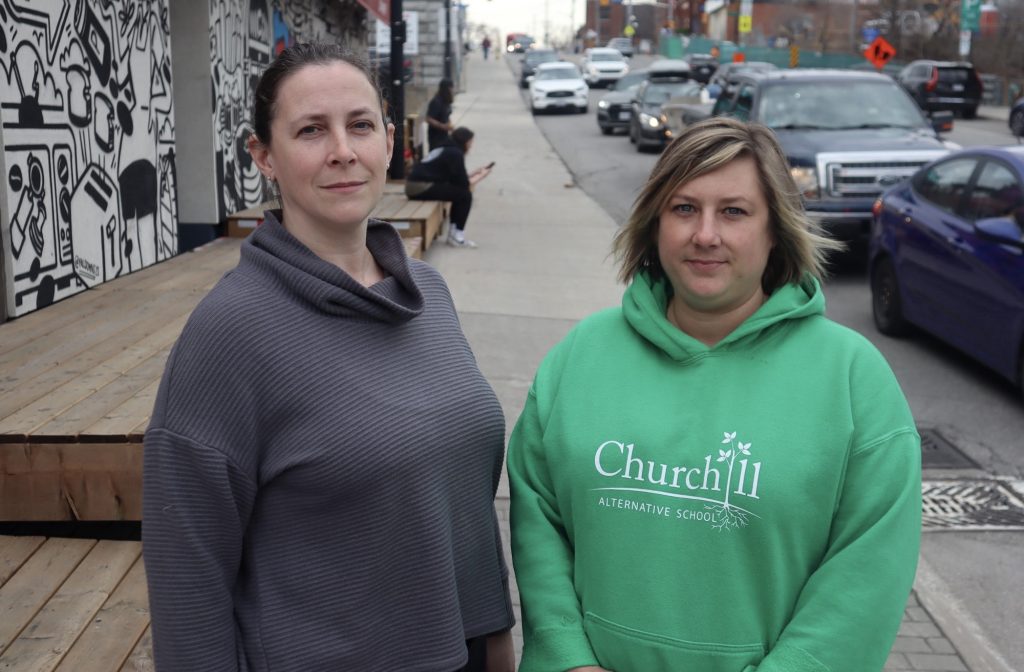The Ottawa Carleton District School Board is scaling back changes to its elementary program, but alternative education is still on the chopping block.
That worries parents at Churchill Alternative School, who says the program has been a lifesaver for their children. Unlike traditional school programs, it focuses on individualized learning with flexible scheduling. Report cards only have comments, not grades, and sports teams are for all and not competitive.
“There’s no sticker charts or awards. There is no recognition of individual accomplishment. That’s a cultural thing. All the teachers and the principal are addressed by their first names. The idea is to remove the official hierarchy in schools and value each person’s contribution to the school community,” said Amanda Case, co-chair of Churchill Alternative’s school council. “ As a result, kids aren’t trying to outperform each other or be the fastest. If a student finishes their work early in class, instead of being given a fun task, they are reassigned to help their struggling peers.”
Case has two kids who attend the west end school in Westboro and two others who aren’t yet old enough to attend. While there are plans to grandfather some students, her youngest would not be eligible to attend.

Rosalind Paciga has two children — one who’s already graduated from Churchill and another who is still enrolled. Current changes would see her youngest need to move to Devonshire Public School due to a restructuring of the boundaries.
“The community my family and kids have developed here would be ripped apart from them,” she said. ”My eldest started his elementary at Devonshire in a mainstream French immersion program, and it wasn’t a fit for him. He struggled both academically and socially. Since moving to Churchill in grade 3, he did a 180 academically and socially. He was so happy to go to school which didn’t happen before in the mainstream program.”
The OCDSB is making massive changes. While there were plans to change school grade structures massively, most of that has been rolled back. Many in the Westboro and Wellington West neighbourhoods will still face negative changes due to a redrawing of the boundaries. Several specialized programs set to be cut have also been saved.
However, the board says that alternative education still needs to be ended. The OCDSB is currently facing a $20-million hole in its budget for the next school year and says it’s costly to transport students out of their neighbourhoods.
This is the fourth year the board has been running a deficit, which has resulted in the province launching an investigation into its finances. The Ministry of Education will receive a report on May 30, but depending on its findings, the Ontario government could take over the board’s finances.
OCDSB Chair Lynn Scott has blamed the province for the mess and says it’s due to a “misalignment” between the funding formula and the board’s staffing model.
Despite this, Paciga is encouraging the board to reconsider its stance and invest further in alternative education.
“I’ve asked trustees to recognize that not all children learn the same way. Taking away the alternative program and forcing every learner in Ottawa into a single one-size-fits-all mainstream program is completely inequitable,” she said. You’re setting these children up to fail.”
